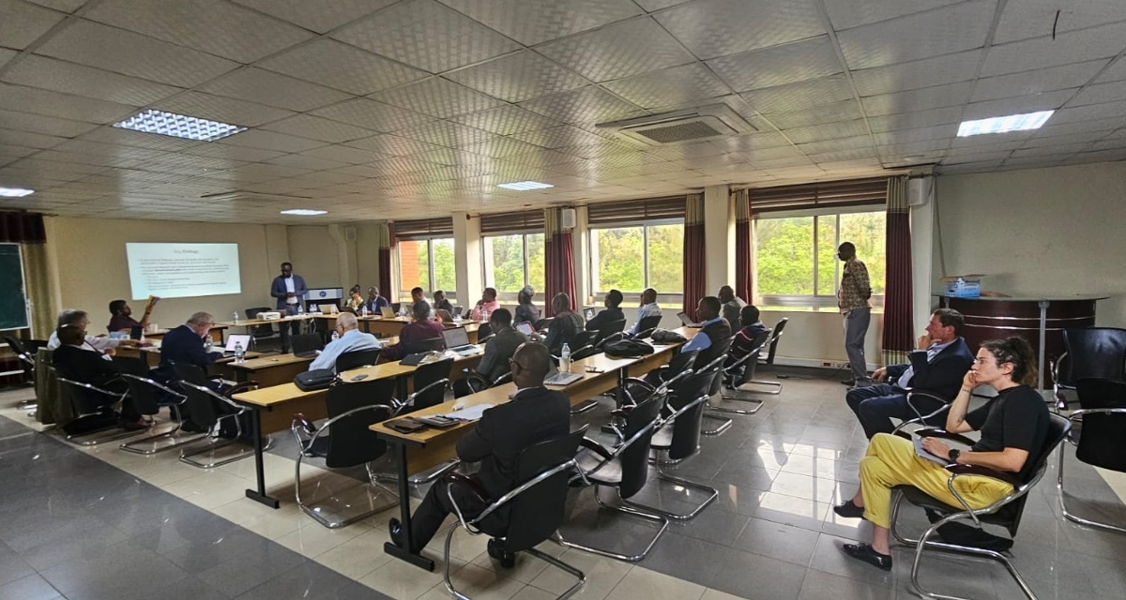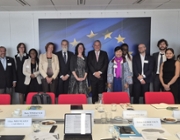CLGC2023: reflections on the research colloquium

15 November 2023
Running parallel to the Commonwealth Local Government Conference 2023, the Research Colloquium took place on 13 and 14 November, hosted by the University of Rwanda. The event brought together academics from around the Commonwealth to present their research papers on issues of importance to the local government agenda. It was attended by around 50 people, including many local academics and students from Rwanda.
Resilience during COVID-19
This year’s research colloquium was more diverse than usual, covering various topics relating to financial resilience to e-governance, public participation in local economic development and cross-border trade, network governance and increased participation, and sustainable urbanisation and climate change issues. A considerable amount of focus at the colloquium was on resilience during COVID-19 and our learnings from it. Many studies showed that combatting COVID-19 was possible because of the resilience of local governments and the innovations that took place at the grassroots level.
Cross comparative perspective
The issues discussed covered a range of countries where systems vary, and the context of the local government has changed over the past few years. Researchers presented their work on these areas as evident in Rwanda, South Africa, Jamaica and India, with a cross-comparative perspective across the Commonwealth. On financial resilience, the colloquium demonstrated that inter-organisational planning across tiers leads to greater resilience. The background paper, especially, talks about creating a revenue-generation ecosystem and advises developing the capacity to co-generate data in consultation with the citizens. It also argues for capacity-building to analyse data locally, for a better needs assessment.
Working creatively with local traditions
At the same time, it is heartening that local stakeholders around the Commonwealth are negotiating current problems of democracy by working creatively with local traditions. It is intriguing to see imihigo go hand in hand, for instance, with concepts ingrained in new public management, like active citizenship and local resilience. From sharing of best practices across districts, which was titled ‘modernisation of imihigo’ by a researcher, to ‘bring what you have and together we will make it’ as an imigiho-motto, the colloquium argued for the importance of local context for a better impact.
Regarding service delivery, the scholars discussed modern technological tools smart cities use to understand citizens’ needs and design services accordingly. People’s preferences towards digital services are evident across Rwanda and Jamaica. Regarding ICT, the difficulty in responding to the increasing diversity as one of the major justifications for understanding citizens’ needs was discussed, and once again, the local context. Here, the importance of local language, was emphasised.
Climate change and low participation
Several innovations were discussed at the colloquium. These include addressing issues of low participation, especially women's participation, in situations of high complexity and uncertainty in service delivery. In contrast to the old market-customer or services model, a new resilience-based model was proposed as a way forward. Innovations in local governments’ mitigation measures for climate change were discussed, with examples from Rwanda’s Green Deal, South Africa’s ‘Let’s Respond’ kit for addressing renewable energy issues and Papua New Guinea’s fascinating planning for climate financing. These innovations seem inextricably interwoven with the biography of a place, with its historically embedded traditions. Post-COVID-19, we are ever more aware of the territorial nature of issues and the importance of the social place and space for increased resilience. The Research Advisory Group is engaged with a number of ongoing projects, and we hope to see more of such innovative and exciting outcomes in the future.
Outcomes Statement
CLGF Associate Board Members, Professor Eris Schoburgh from the University of the West Indies, Jamaica; Dr Philip Amis, University of Birmingham, UK; and Dr Bhaskar Chakrabarti, Indian Institute of Management Calcutta, India joined CLGF’s Policy and Research Officer, Ms Idil Mohamed and staff from the University of Rwanda to deliver the event, with Dr Bhaskar providing a reflection of the two-day colloquium and the importance of linking research and policy making, at the closing session of the Commonwealth Local Government Conference.
CLGF knowledge hub
For more information about CLGF's research work and publications, go to the Research Centre on the website. This includes editions of the Commonwealth Journal of Local Governance - CLGF's peer-reviewed e-journal that brings together perspectives of researchers and local government practitioners aross the Commonwealth.
Back to News





